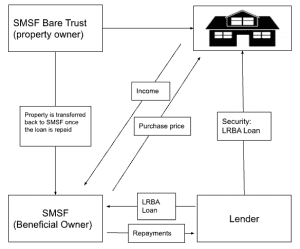Over the past couple of weeks, whole industries have been decimated as a result of the need for social distancing and the resultant government closure of whole sectors.
Individual businesses are now struggling to come to terms with no income and in many cases, ongoing expenses. many businesses have made the tough decisions with their employees however, most businesses have fixed costs that are ongoing, regardless of whether the business is trading, or not. What are their options?
We’ve spent a lot of time talking to the banks to understand how they are intending to help businesses and a high-level summary follows. This is based on the current information and may change over time.
Repayment Holidays:
Similar to home loan customers, businesses will also be able to apply for a repayment holiday for up to six-months. This means that principal and interest repayments are suspended for up to six-months. The interest is capitalised (added) to the loan balance which means that they loan balance increases by the amount of the interest cost. At the end of the holiday period, the bank will restructure the loan balance over the remaining term, or will consider an extension to the loan term. Repayment holidays are available for a wide range of loan types, including plant and equipment finance.
The banks are taking a couple of different approaches to the repayment holiday. Where the company borrowings are less than $3M. the request for a holiday is generally automatically granted. Where the borrowings are greater than $3M, the banks are generally doing a ‘basic assessment’. At a high-level, the banks are seeking to understand the income and expenses for the six-month period, purely to understand the basis for the request.
Government Guaranteed Loan:
The government has offered to guarantee a loan of up to $250,000 for businesses who need working capital. As a result of the government guarantee, supporting security should not be required. Whilst there will be a variety of banks that are able to offer the government guaranteed loan, from a ‘logistical perspective’ it is easier for the existing bank to provide the loan. This is because of the ID requirements which are required for a new bank.
Whilst there is a government guarantee, the banks are still assessing these loans on the basis of the historical financial performance of the business. This means that the business would need to demonstrate that they would qualify for a loan of this size, based on their normal trading results.
The loan is structured so that it is a single drawdown and businesses are able to go back more than once for additional loan funds. This means that if the business feels that it will only need $100,000 working capital, there is no point applying for the full $250,000 because the whole loan balance will need to be drawn-down and interest costs accrued.
Repayments for the loan are frozen for the first six-months and the balance of the loan is repayable over a two-and-a-half-year period after the initial six months. This means that the business needs to have enough certainty that under ‘normal circumstances’ they would be able to afford a loan of this size.
A link to the government website is here:
Summary:
All of the banks are developing their assistance policies on an ongoing basis. It is fair to say that everyone within the community is adjusting to the rapid escalation of Covid-19, banks are no different. We are very encouraged that the banks have taken a very sympathetic and responsive approach to the health crisis. They have also indicated that they will continue to adopt a flexible approach as events unfold.
From our perspective, we are more than happy to talk to any business or person who has questions or concerns with their options. This is a very stressful time for everyone and we are all in it together, so we are more than happy to share our knowledge.
